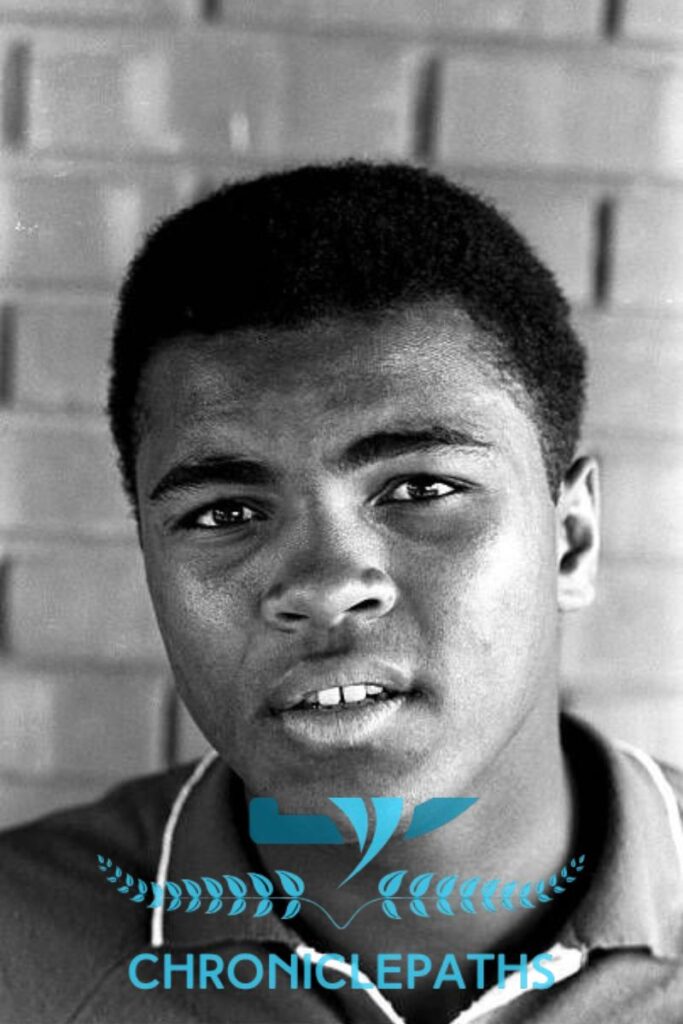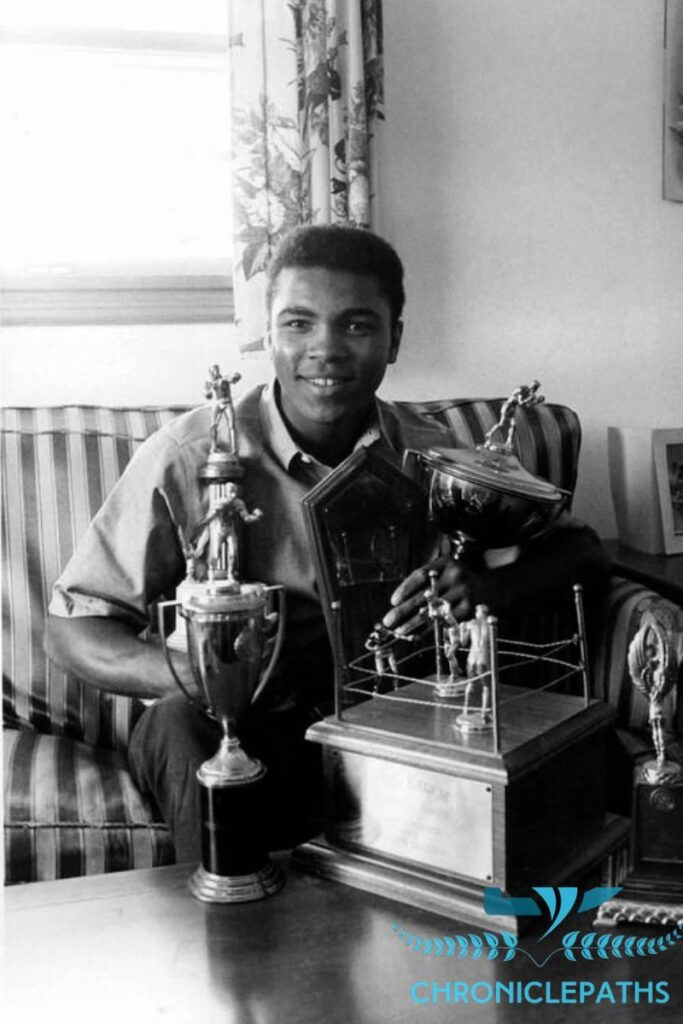Muhammad Ali, born Cassius Marcellus Clay Jr. on January 17, 1942, in Louisville, Kentucky, was a legendary boxer and cultural icon. Known as “The Greatest,” Ali was not just a world champion in boxing but also an activist, philanthropist, and global inspiration. His charisma, wit, and unmatched skill in the ring made him a household name worldwide.
Muhammad Ali’s Early Life

Growing up in segregated Kentucky, Ali’s determination to succeed emerged early. At the age of 12, after his bicycle was stolen, he vowed to “whip” the thief, leading to his introduction to boxing. Under trainer Joe E. Martin, Ali began his journey to greatness.
Boxing Career Highlights
Olympic Gold Medal (1960): Ali won the light heavyweight gold medal at the Rome Olympics, marking the start of his career.
First Heavyweight Title (1964): At 22, he defeated Sonny Liston to become the youngest heavyweight champion, famously declaring, “I am the greatest!“.
Rumble in the Jungle (1974): In one of boxing’s most famous fights, Ali defeated George Foreman using the iconic “rope-a-dope” strategy.
Thrilla in Manila (1975): His rivalry with Joe Frazier peaked in this brutal, epic bout, which Ali described as “the closest thing to dying.”
Activism and Legacy
In 1967, Ali refused to serve in the Vietnam War, stating, “I ain’t got no quarrel with them Viet Cong.” This led to a five-year boxing ban, during which he became a symbol of resistance to racial injustice and war.
Ali’s work extended beyond the ring:
- Advocating for civil rights.
- Raising awareness for Parkinson’s disease after his diagnosis in 1984.
- Supporting global causes like hunger and disaster relief.
Why is Muhammad Ali called “The Greatest”?
Ali combined unmatched boxing skills with his larger-than-life personality. He was known for his famous quotes, including:
- “Float like a butterfly, sting like a bee.”
- “I’m so fast that last night I turned off the light switch and was in bed before the room was dark.”
Muhammad Ali’s Awards and Honors

- Three-Time World Heavyweight
- ChampionSports Illustrated Sportsman of the Century (1999)
- Recipient of the Presidential Medal of Freedom (2005)
Off the Ring: Cultural Impact
Ali’s charm, confidence, and humor made him a global figure. He transformed the perception of athletes, showing that they could use their platform to influence politics, religion, and social issues.
Conclusion
Muhammad Ali remains a timeless symbol of greatness, courage, and resilience. His influence transcends sports, leaving an indelible mark on history. As Ali himself said, “I hated every minute of training, but I said, ‘Don’t quit. Suffer now and live the rest of your life as a champion.'”
